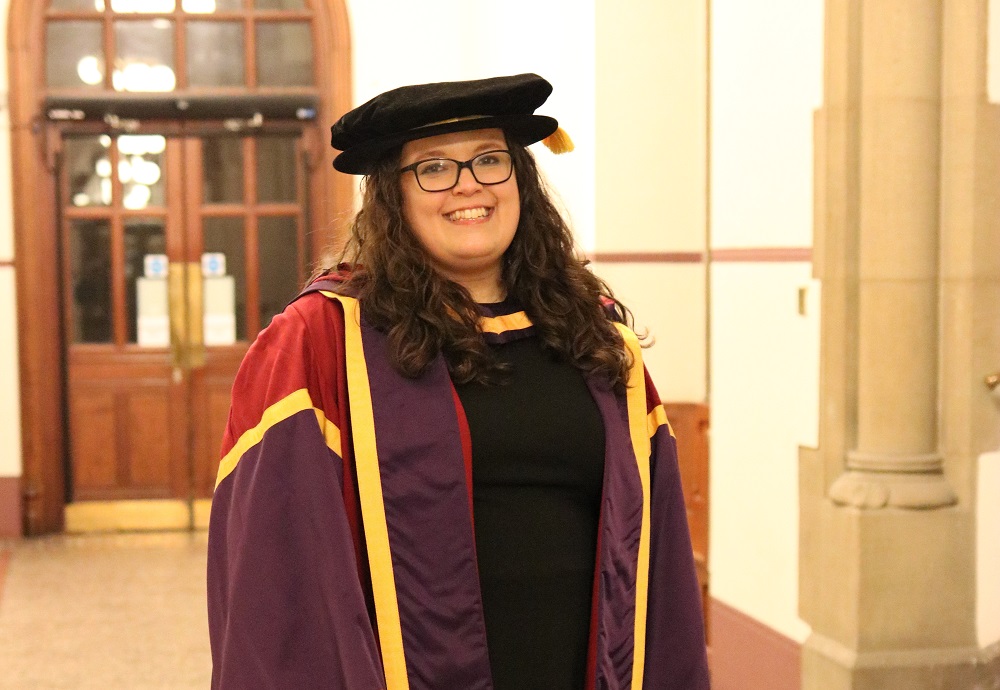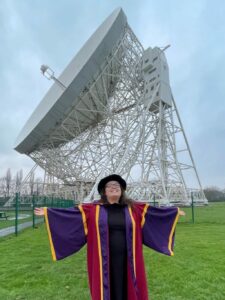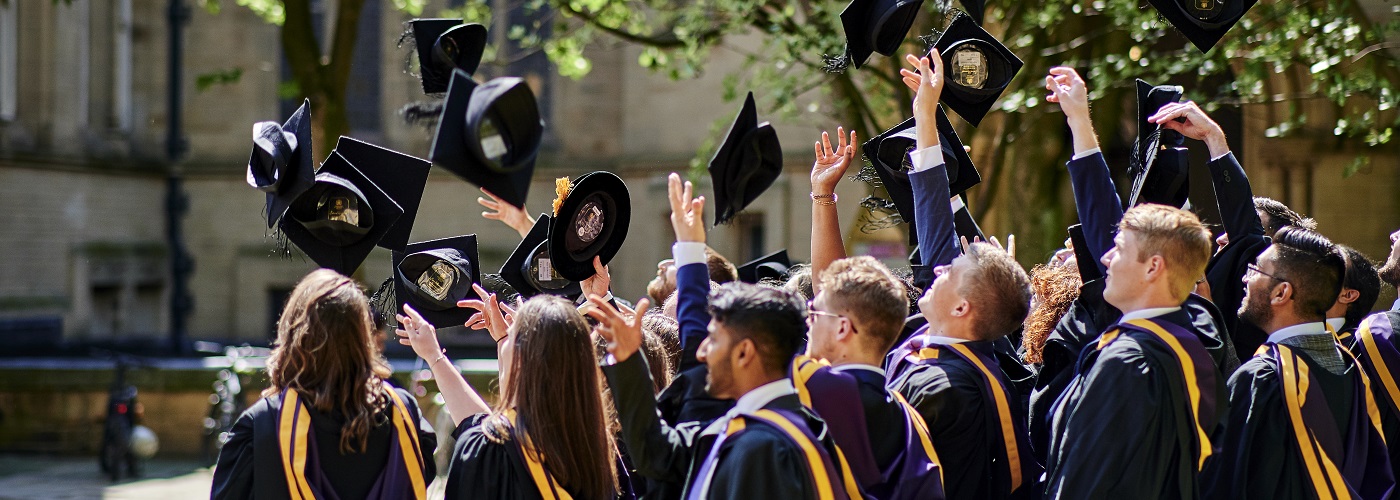Each December, hundreds of talented people successfully graduate from The University of Manchester’s PhD programmes. For many, this achievement is made possible thanks to the generous donors who support our research through PhD scholarships.
A PhD gives students the opportunity to pursue a subject they are passionate about, whilst also contributing to our world-leading research efforts here at the University. The work undertaken by postgraduate students is essential to help lay the foundations for future discoveries and increase our understanding of the world around us.
For students at the beginning of their career journey, a PhD can also be the gateway to exciting research and professional roles. But increasing costs and scarce research funding means that many of the brightest people would struggle to take this important step without donor support. By giving a diverse range of students the chance to undertake further study, our donors are developing the researchers, thinkers and leaders of the future.
In this series of posts, you can meet three inspiring individuals who recently completed their PhD at Manchester, graduating last December. We hope you’ll enjoy reading about their experience as well as their exciting future plans!
Emma, PhD Astronomy and Astrophysics

Emma graduated in December 2022, having completed a PhD in Astronomy and Astrophysics. Emma is also a recipient of the George Rigg Presidential PhD Scholarship in Astrophysics, which has been generously supported by the Rigg family.
We are grateful to have this opportunity to mark the contribution of fellow alumnus and longstanding board member of the North American Foundation for the University of Manchester, George Rigg (1940 – 2020) through this Scholarship.
Can you tell us about your PhD research topic?
Magnetic fields are everywhere in the Universe. My PhD work focused on observing astrophysical magnetism via the Faraday effect.

The Faraday effect hinges on the concept of polarisation: the way in which a light wave oscillates. Usually, this oscillation direction is random. If the light waves are oscillating in the same direction, we say that light is polarised. When a polarised light wave passes through somewhere in space with an abundance of electrons and magnetic fields, it is rotated. The wave can go from oscillating ‘up and down’ to ‘left and right’ and around again; the extent to which this occurs depends on how strong the magnetic field is.
By looking at the polarisation of radio waves with different wavelengths, we can calculate the magnitude of the Faraday effect for different directions into space – telling us about the magnetic fields along the path the radio waves have travelled to reach us.
My project was part of a larger international collaboration: POSSUM, the Polarisation Sky Survey of the Universe’s Magnetism. My work in particular focuses on radio galaxies: galaxies which are bright in the radio part of the light spectrum. All the galaxies that I have studied have an Active Galactic Nucleus, which occurs when black holes at the centre of galaxies convert the mass that they consume into energy. This then releases powerful jets, which can stretch out to distances much larger than the galaxies themselves and are bright when seen in radio waves. This makes them great targets when looking for Faraday rotation — and that’s what I’ve spent the past few years looking at!
Why did you choose to study at The University of Manchester?
I studied physics at Manchester as an undergraduate, and I was drawn to the University in part due to its large astrophysics department (including Jodrell Bank Observatory). For my final year undergraduate research project, I studied the magnetism in a nearby galaxy using radio astronomy data. When the opportunity arose to study something similar for my PhD, I didn’t hesitate to apply!
What will you remember most about your time at Manchester?
The community of people I built up around me, both peers and mentors. Completing a PhD is hard at the best of times, especially during a global pandemic. As students, we took the camaraderie we’d had in our shared offices and moved it online, maintaining that crucial support network during unusually challenging times.
How did receiving your scholarship make a difference for you?
A PhD is a full-time job, and (for the vast majority of people) funding is necessary for it to be feasible. Funding is always very competitive, and I am very grateful for my PhD scholarship, which helped to drive me to do the best work I could.
What are you future plans/career aspirations after graduation?
I have been working as a post-doctoral researcher here at The University of Manchester since my PhD ended. I am now actively looking for a new opportunity — ideally one which allows me to continue my research here at the University. I would love to stay in academic research, helping to increase the understanding of our Universe.
Do you have any words of thanks for donors who support PhD scholarships, such as yours?
Thank you! Thank you for supporting the development of early career researchers like me, be that in scientific research or beyond. Funding for academic research is always so competitive. The more support that there is, the more we can train incredible researchers in their chosen fields. This means more discovery, more innovation, more development — and more given back to society.
If you’d like to read more, you can meet our other PhD graduates in the posts below:

